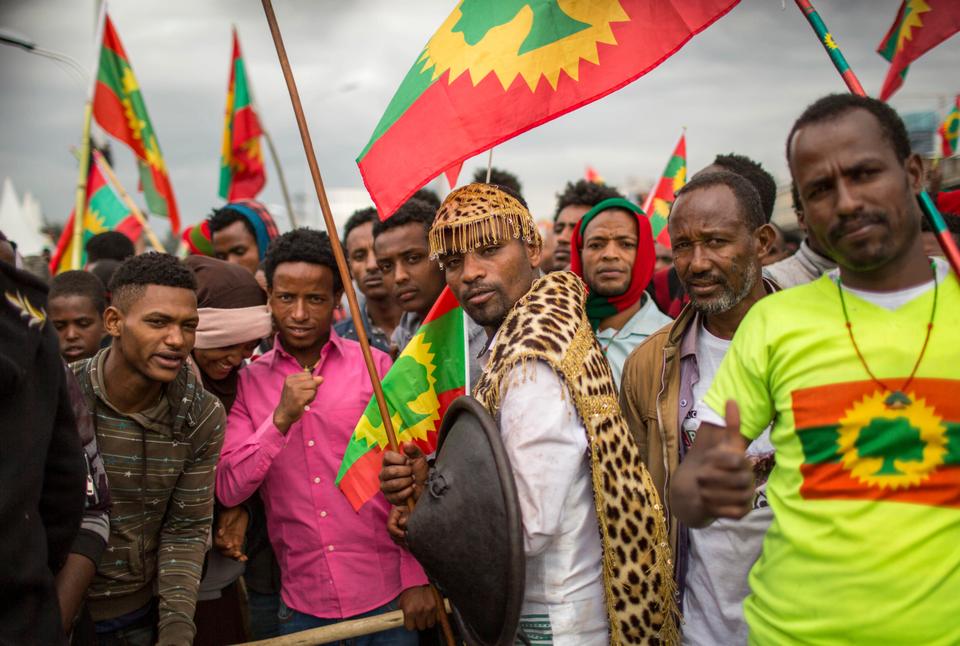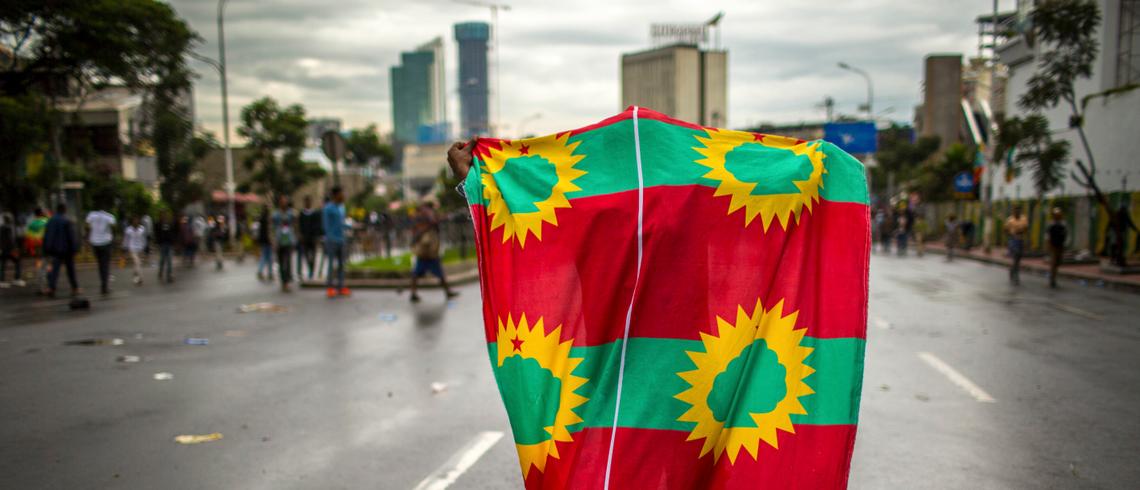The young and reformist leadership of Prime Minister Abiy Ahmed is facing the challenge of growing ethnic tensions, while the country's newly free media is facing accusations of peddling fake news.
Last year, Ethiopia turned a corner in press freedom. Under the new Prime Minister Abiy Ahmed, 264 previously blocked websites were unblocked, new media outlets started sprouting across the country, 23 publications and six privately owned satellite channels were given licenses, imprisoned journalists were freed and those in exile were allowed to return. In the process, Ethiopia became the global poster child for newfound democracy and reform, jumping 40 places to 110 this year in the World Press Freedom Index.
As a sign of recognition, the United Nations’ annual celebration of press freedom, World Press Freedom Day, was held in Addis Ababa earlier this month. In the capital, it is difficult to miss the sense of optimism, from the opening up of the political, civil and economic space to the construction boom that has overtaken the city.
And yet the event was tempered by sobering discussions on ethnic conflict and mob violence, which have sharply spiked across the countryside in the last year. Ethiopia had 1.4 million internally displaced people due to ethnic conflict in the first half of 2018. The current figure is at two million, the highest in the world, according to Human Rights Watch.
It is no mere coincidence that these two shifts, an opening up of the media and growing ethnic tension, have emerged at the same time. The country has a long history of rivalry between its 80 ethnic groups and yet, as it goes through a political transition, its newly free media stands accused of fanning the flames of violence and polarisation by peddling fake news and extreme views.
Eskinder Nega is one of Ethiopia’s most prominent journalists. He has been arrested seven times and was released last year after spending seven years in jail. Nega launched the weekly newspaper Ethiopis last year and he has been criticised for stoking tension with divisive reporting against the Oromos, the largest ethnic group in the country.
“The media has generally underreported many of the ethnic conflicts,” said Felix Horne, Senior Researcher for Ethiopia and Eritrea at Human Rights Watch, over email. “There are regular allegations that some ethnic-based media outlets fan hatred. At the very least, these outlets usually only report one side of a multi-sided and often complex situation, leading to increasing anger from their ethnic constituents.”

Aaron Maasho, a journalist with the Financial Times, said on the sidelines of the festival: “If you ask me, I am a little bit pessimistic, although I’ve been supportive of all the reforms that have been enacted. I think at the same time ethnic relations in Ethiopia is the worst at the moment, so there’s clearly a danger.”
It is in the country’s recent history that some explanations can be found. After years of repression, people are finally getting the chance to express themselves. “In Ethiopia, journalists think of themselves as activists. When their activism leads us to hate crime or ethnic discord, it becomes a problem for all of us,” said Aman Fissehazion, Chairman of the Association of Ethiopian Broadcasters, who also runs a privately-owned television channel. He observed this in a panel discussion entitled ‘Press freedom before and after the transition’ and exhorted journalists to be “responsible and professional”.
Ethiopia stages elections next year and Ahmed has been under pressure to act. His government will soon be introducing a law on hate speech. Journalists and media owners claim the law was drafted by the government without involving them in consultations. Even though Ahmed has emphasised his “unwavering commitment” to fostering freedom of the media, he said in a speech while accepting UNESCO’s Prize for Peace: “We need to ensure that opening up of media space does not facilitate misinformation, the spread of hate speech and fake news.”
Most observers, like Horne, agree there has been a dramatic rise in hate speech on social media. In the absence of other credible sources of information, people take at face value what they read on social media.
The law has led the newly vociferous Ethiopians to take sides. Many hold the opinion that the hate speech law is necessary to crackdown on irresponsible media, others express their misgivings at how it could be used to muzzle genuine expression of dissent.
For the Ethiopian media, this is a moment of reckoning and introspection. At the various panels and discussions that were held during the event, there was talk about self-regulation and forming a media council. Befekadu Hailu, an Ethiopian activist and blogger, who was arrested in 2014, is Deputy Editor at the newly launched weekly newspaper Addis Maleda.
“I don’t think hate speech law is the solution. I don’t know why the government wants to restrict freedom of expression. This will kill the optimism in all of us,” he said.







